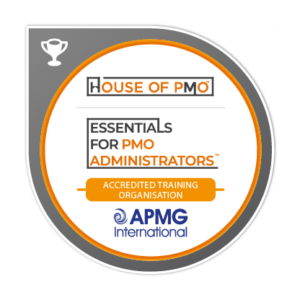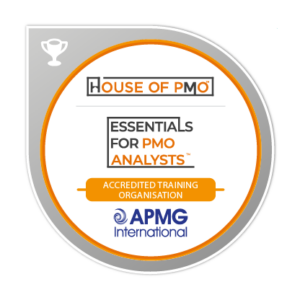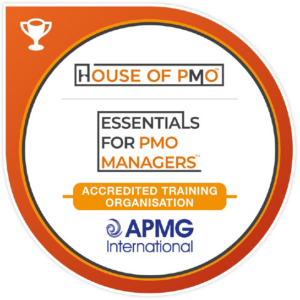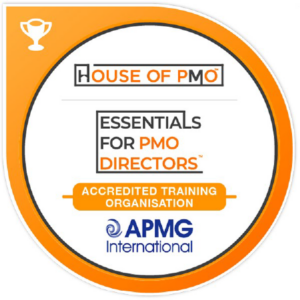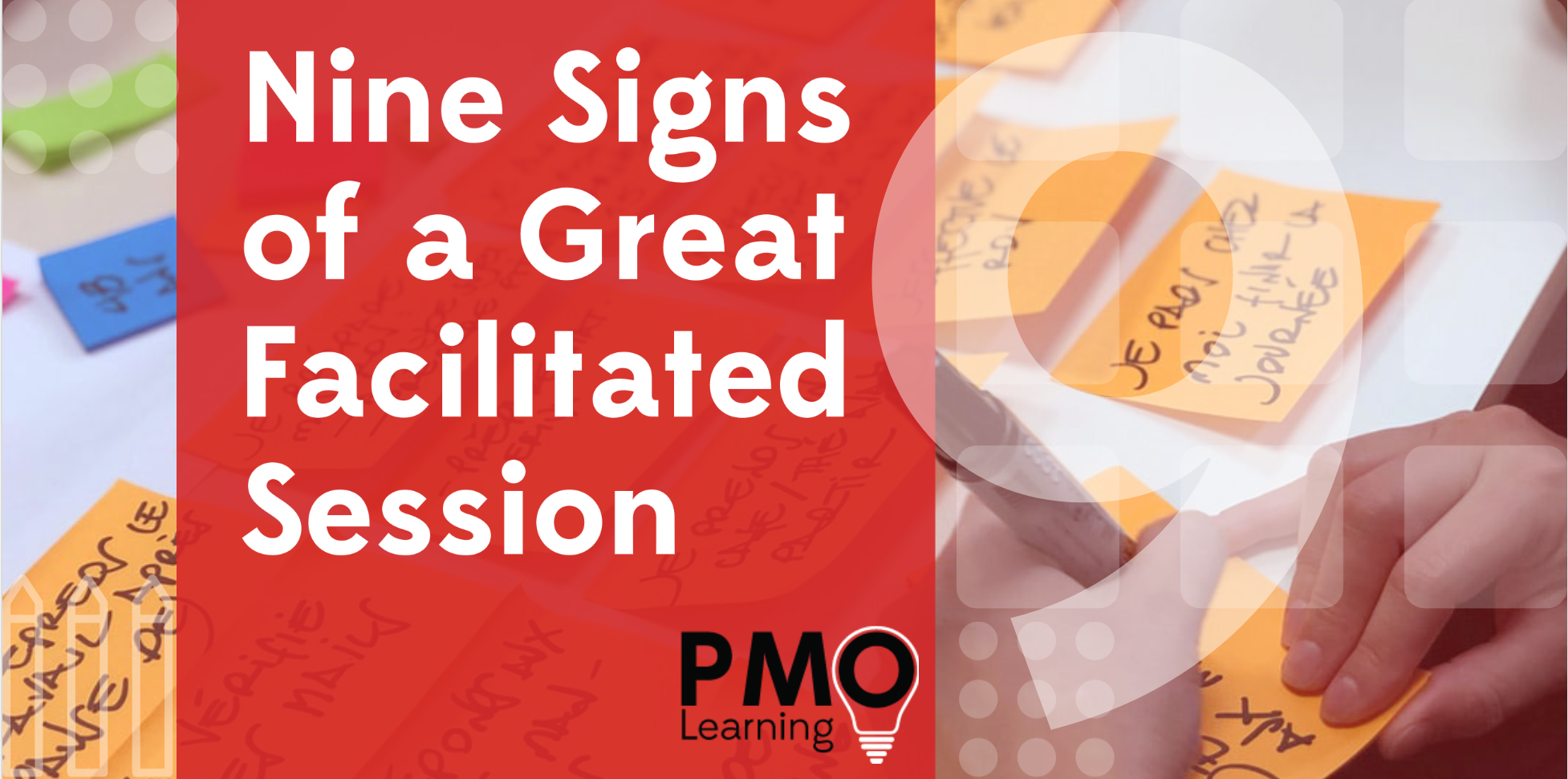
 Facilitation skills are something that every PMO practitioner should have – apart from it being a great service offering to the many meetings; workshops; reviews; retrospectives; premortems – and any other collaborative event you can think of – it’s also a great way to understand more about how the projects, programmes and portfolio are operating.
Facilitation skills are something that every PMO practitioner should have – apart from it being a great service offering to the many meetings; workshops; reviews; retrospectives; premortems – and any other collaborative event you can think of – it’s also a great way to understand more about how the projects, programmes and portfolio are operating.
In the Facilitation Fundamentals for the PMO half-day course, we pick up where the P3O course finishes.
Here’s what it says in P3O®:
To be successful, programme and projects require a shared understanding of their objectives, teamwork and effective decision-making. Programme and project decisions by their nature are contributed to by groups of people in meetings or workshops. However, the ineffective management of workshops can lead to wasted management time and effort and the demotivation of the participants. Therefore, managing workshops is a key skill in the programme and project environment and the PMO is ideally placed to provide an independent facilitation role.
The PMO is ideally placed to provide that role, yet many PMOs don’t – and there isn’t a valid reason why not!
So how can the trend of ineffective management of workshops be reversed – apart from upskilling in the role of the facilitator itself here are nine signs that tell you you’re in a great facilitated session (from Leadership Strategies Inc).
1. Everyone understands what is happening, what needs to be achieved and why.
Being able to plan a great session relies on understanding the approaches, model, techniques and different devices that can be used in facilitated sessions.
With a good plan of action, you are able to set the scene and tone of the session – bringing everyone onboard with a clear plan of action for what required from individuals and the team as a whole.
2. Everyone is happy, interested and engaged throughout the activities.
Having a variety of tried and tested approaches throughout the session keeps everyone engaged – facilitation is about being able to adapt when necessary to keep the session flowing. Variety keeps everyone engaged and throwing in a few different types of exercises can keep interest levels high.
3. Everyone stays focused on the topic being discussed and the issues being solved.
Managing the room and the people is a skill that develops over time but with good planning and the understanding of different techniques to keep wandering minds in check, the facilitator keeps everyone focused on the goal.
4. Everyone feels they can interact openly and productively.
It starts with ground rules and setting the session culture from the outset – the facilitator’s presence and approach – and watchful eye on the balance of the team and individual contributions is crucial.
5. Everyone feels able to contribute and help develop the solutions that address the issue.
There are many different techniques and exercises available to ensure that it is not just those that speak the loudest that contribute.
6. Everyone understands and are committed to the outcomes and solution.
 It’s down to the facilitator to ensure that no-one is left behind in discussions – and more crucially the solutions being agreed on. Gaining consensus and addressing outliers – it’s a delicate balance that facilitators achieve.
It’s down to the facilitator to ensure that no-one is left behind in discussions – and more crucially the solutions being agreed on. Gaining consensus and addressing outliers – it’s a delicate balance that facilitators achieve.
7. Disagreements are resolved effectively and efficiently, with everyone feeling their views were heard and respectfully considered.
 Understanding the different types of disagreements that can arise and using different techniques to overcome and resolve is a skill developed over time by facilitators.
Understanding the different types of disagreements that can arise and using different techniques to overcome and resolve is a skill developed over time by facilitators.
8. Dysfunctional behaviour is addressed effectively and efficiently, with everyone feeling the group’s norms were respected and violations of the norms appropriately addressed.
As with disagreements, a facilitator’s role is to plan a session and provide an environment that helps to prevent dysfunctional behaviour from arising – being able to detect and resolve it if it does. Understanding group dynamics; handling sensitivities; leading with confidence and demonstrating patience are all key facilitation skills.
9. At the completion of the session, everyone understands the decisions made, and the follow-up actions to be taken, by whom and by when.
Like any process – having a formal close is just as important as the open. Throughout the session, participants are led towards owning the outcomes, taking the actions required
All of these signs are down to two things – a great facilitator and a great plan.
Back in 2003, a survey from Leadership Strategies, still very relevant today, looked at great facilitators and showed that there were several factors that helped to pinpoint them as being great – these were; focus, engagement, being adaptable, being a great listener; knowledgeable and the ability to remain neutral.
From a skills point of view, the top skills for being a great facilitator, from the same survey highlighted:
- The ability to plan and prepare for the session effectively.
- To listen effectively, making sure to playback and confirm important points.
- To create and maintain a safe environment for people to speak openly without fear of retribution.
- Knows when to ask further questions
- Can project confidence in their own skills and abilities to lead the group.
Providing a facilitation service from the PMO enables managers and teams to concentrate on resolving issues or removing future blockers – after all, the PMO is there to support programmes and projects and enable decision-making. What better way to demonstrate we are doing just that with a facilitation service.
Facilitation skills don’t come naturally to the PMO – in the past we’ve focused much more on assurance, governance and control, with facilitation its the flip side – about people, collaboration, creativity.
Will your PMO be offering the service? Why not explore the Facilitation Fundamentals course from PMO Learning and start upskilling your PMO today.
The P3O® courses on this page are offered by PMO Learning. P3O® is a [registered] trade mark of AXELOS Limited. P3O® is a registered trade mark of AXELOS Limited, used under permission of AXELOS Limited. The Swirl logo™ is a trade mark of AXELOS Limited, used under permission of AXELOS Limited. All rights reserved.
Enjoying Our Blog?
Sign up and receive all our articles (we’ll send you an update once a week!) plus special offers and events:









